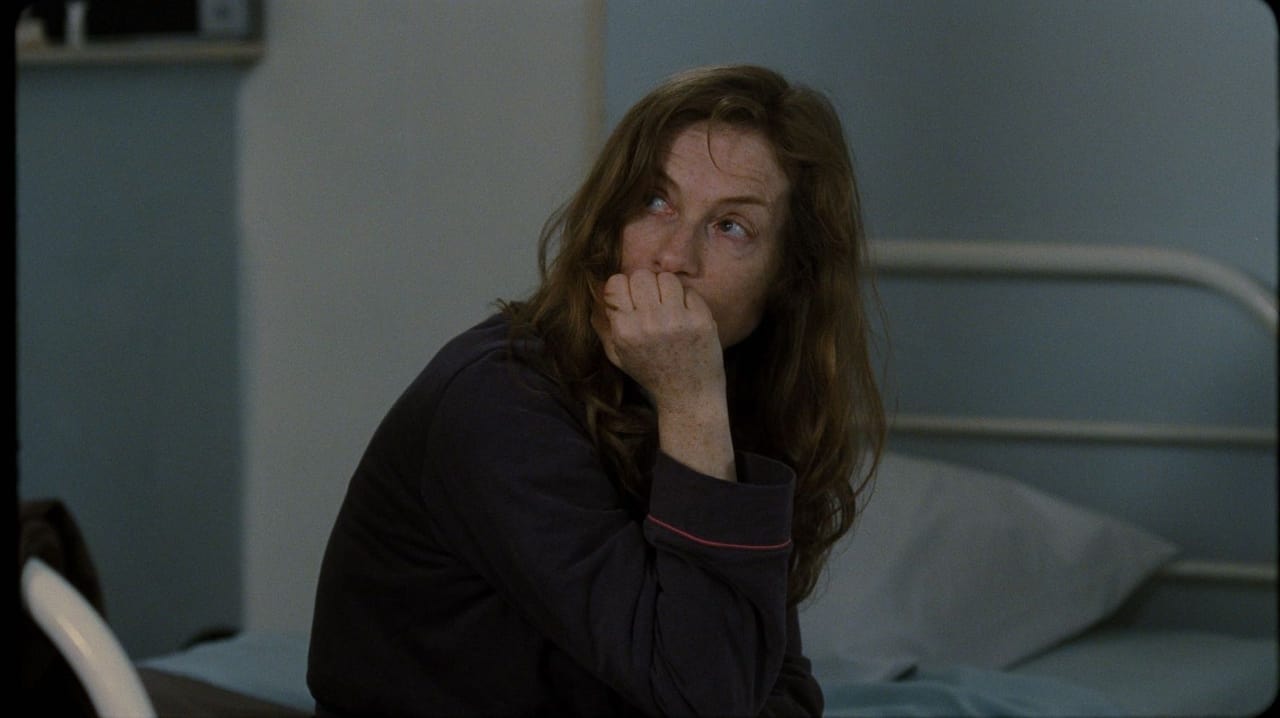

Load of rubbish!!
... View Moredisgusting, overrated, pointless
... View MoreThe film makes a home in your brain and the only cure is to see it again.
... View MoreOne of the film's great tricks is that, for a time, you think it will go down a rabbit hole of unrealistic glorification.
... View MoreAlessandro Capone's Hidden Love (2010) is a very well executed, and thought provoking film, with great acting by the whole cast, and especially by Huppert. But as a film fanatic with a BA/MA in Psychology, I just can't buy this film as an expression Of Cinematic Realism in any way, because the storyline just doesn't portray severe mental illness, life in a mental hospital, or the behavior of a professional psychiatrist in very realistic terms.Examples: 1) The type of severe psychosis exhibited by Danielle just doesn't "magically" disappear like it did at the end of this film, even given a "life changing" event, like the sudden death of Danielle's daughter. 2) A mental hospital would have a psychotic patient like Danielle in a monitored "locked ward", and not roaming free having violent episodes in the hallway, and having access to pills in the way that this film portrays Danielle. 3) The portrayal of the "sympathetic" Dr Nielsen getting so emotionally involved with the psychotic Danielle is unreal, because you learn in Psych 101 that a therapist who becomes emotionally involved with a patient loses his therapeutic effectiveness. From a Realist perspective, this is just a psychiatric film from outer space.However, this film does work very well for me as an Avant Garde portrayal of feminist maternal anxiety.A feminist interpretation of this film works because ALL the main characters are women, and also because it passes the Bechdel Test many multiple times ad nauseam.The Avant Garde angle works because of the elements of radical cinematography, a couple of weird symbolic scenes toward the end of the film showing Danielle with her now dead daughter, and some elements of radical editing in the film.This in no way means that I would necessarily buy into the message of such an Avant Garde feminist interpretation of this film, but I would accept as being within the scope of the creative freedom of the filmmaker.Isabelle Huppert gives a fantastic, believable, and somewhat technically accurate portrayal of a psychotic woman. However, having already viewed a number of Huppert's films, I would say that she seems to be attracted to roles that portray somewhat deranged women, in general.This film definitely did give me much reason for pause and reflection. It is a very well thought out, and provocative film.
... View MoreIt is impossible not to be shocked by this movie, focused on a very delicate theme, and on three female characters. An over the top (and very courageous) Isabelle Huppert plays the main role of Danielle, a mother who hates her daughter in a visceral way, and has spent her whole life between indifference and sense of guilt, but incapable of elaborating her suffering condition. Her interpretation is devastating, her face is completely blank and the camera focused on it underlines the void of her inner world, still more underlined by the aseptic, white, impersonal environment surrounding her. Her troubled relationship with motherhood is probably part of a mental disorder, since also the relation with her good husband has always been difficult, as she has often felt disgusted by him, and she feels in general incapable of experiencing any human feelings. Mélanie Laurent plays Sophie, the hated daughter, she shifts from total inexpressiveness when she is with Danielle (although she feels some kind of love for her), to tender maternal love when she is with her own daughter. Greta Scacchi plays the analyst and is the only soothing and positive human female figure, trying to elaborate some sense and to assert the value of human sympathy.The atmosphere throughout the movie never ceases to be tense, sometimes too tense, the moments of "dialogue" between Danielle and Sophie convey such anger, rage, hate that they are almost unbearable. The final outcome tries to offer some relief, although not too convincing, as if a backwards step seemed to be necessary in order to bring all the hate we have perceived to a more humanly-acceptable dimension, as if some kind of rescue were to be found, but it seems too a hasty ending, which leaves many unsolved, but probably unsolvable questions (above all, the only hinted reference by Danielle to the possibility that every mother could have negative feelings for a child, that you cannot enforce yourself to love someone, not even your own child). Undoubtedly, a very well interpreted movie, but, obviously, very sad and depressing, you need to be prepared and be in the right mood to see it.
... View More